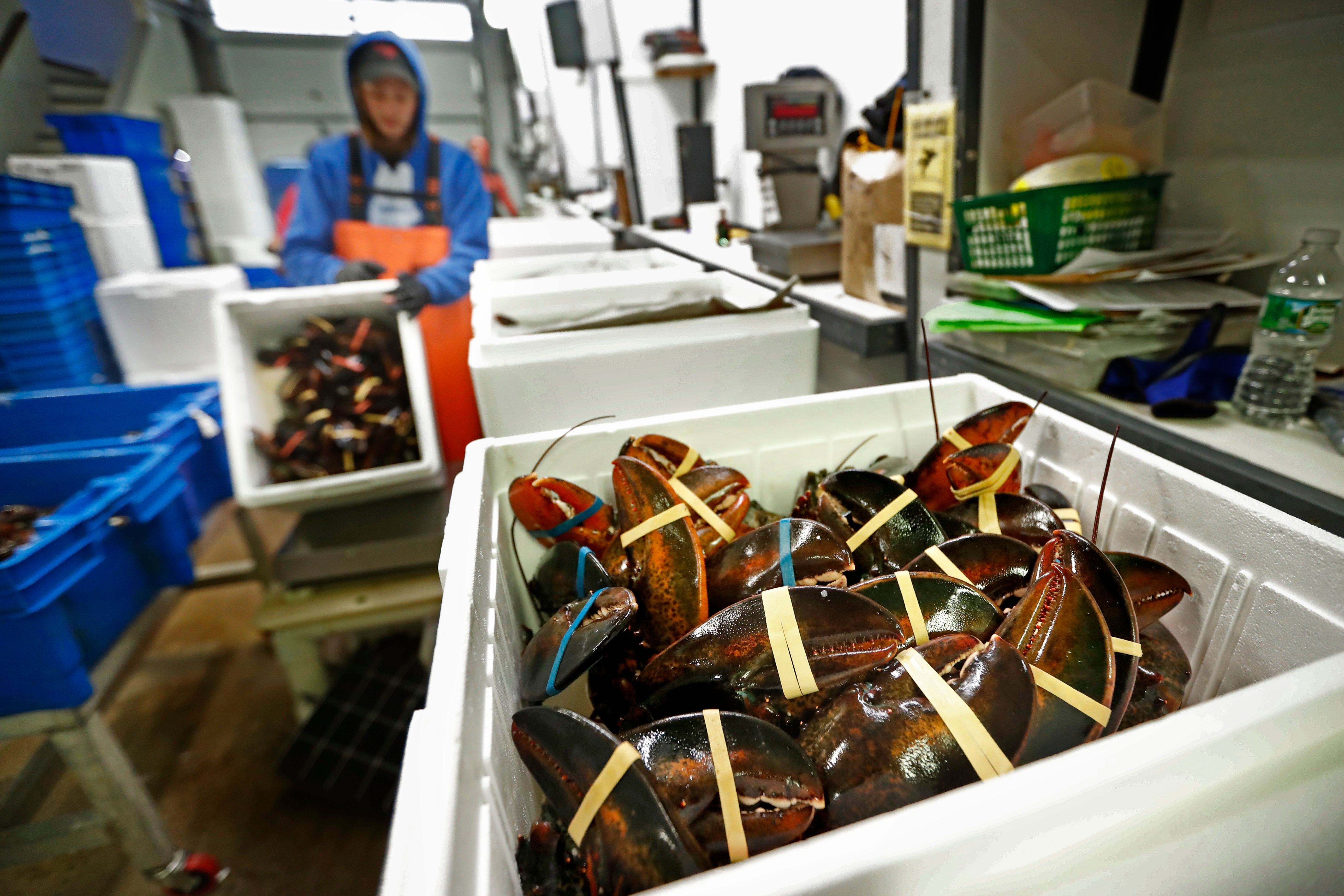Octopuses, crabs and lobsters do feel pain, government report says
Boiling lobsters alive could be banned if ministers heed a new report’s recommendations

Your support helps us to tell the story
From reproductive rights to climate change to Big Tech, The Independent is on the ground when the story is developing. Whether it's investigating the financials of Elon Musk's pro-Trump PAC or producing our latest documentary, 'The A Word', which shines a light on the American women fighting for reproductive rights, we know how important it is to parse out the facts from the messaging.
At such a critical moment in US history, we need reporters on the ground. Your donation allows us to keep sending journalists to speak to both sides of the story.
The Independent is trusted by Americans across the entire political spectrum. And unlike many other quality news outlets, we choose not to lock Americans out of our reporting and analysis with paywalls. We believe quality journalism should be available to everyone, paid for by those who can afford it.
Your support makes all the difference.Octopuses, crabs and lobsters do feel pain, a government review has recognised, paving the way for a possible ban on boiling the animals alive.
They will be given greater protection under UK law – and ministers are now being urged to ban the sale of live crabs and lobsters to the public.
The move follows a report by the London School of Economics which showedthe sea creatures are capable of feeling pain and distress.
If ministers act on the report’s recommendations, boiling lobsters alive could be banned.
The report described several commonly-used methods for killing crustaceans as “inhumane”, including dropping lobsters in boiling water or putting them in the freezer before killing them.
Crabs, lobsters and crayfish are all decapod crustaceans, while cephalopods include squid and octopuses.
There is already a large body of evidence showing these creatures have complex central nervous systems, one of the hallmarks of sentience. The government-commissioned independent review drew on more than 300 existing scientific studies.
Until now their ability to feel pain has not been recognised under the Animal Welfare (Sentience) Bill.
Dr Jonathan Birch, who led the review, said: “Octopuses and other cephalopods have been protected in science for years, but have not received any protection outside science until now.”
He added: “One way the UK can lead on animal welfare is by protecting these invertebrate animals that humans have often completely disregarded.”
The review also cautioned against practices including declawing and nicking pincers, and suggested more humane ways to transport, stun and slaughter the animals. It recommended crabs and lobsters should not be sold to non-specialist handlers.
Animal welfare organisations have long been campaigning on the issue. The Conservative Animal Welfare Foundation (CAWF) welcomed the news, tweeting: “We called for this in our report on crustacean sentience released in June.”
In its report, CAWF said: “Given the strength of the evidence and the vast numbers of animals involved, it is important that we move past the question of whether these animals can suffer and towards exploring how we can alleviate their suffering.”
Animal welfare minister Zac Goldsmith said: “The UK has always led the way on animal welfare and our Action Plan for Animal Welfare goes even further by setting out our plans to bring in some of the strongest protections in the world for pets, livestock and wild animals.
“The Animal Welfare Sentience Bill provides a crucial assurance that animal wellbeing is rightly considered when developing new laws. The science is now clear that crustaceans and molluscs can feel pain and therefore it is only right they are covered by this vital piece of legislation.”
Join our commenting forum
Join thought-provoking conversations, follow other Independent readers and see their replies
Comments